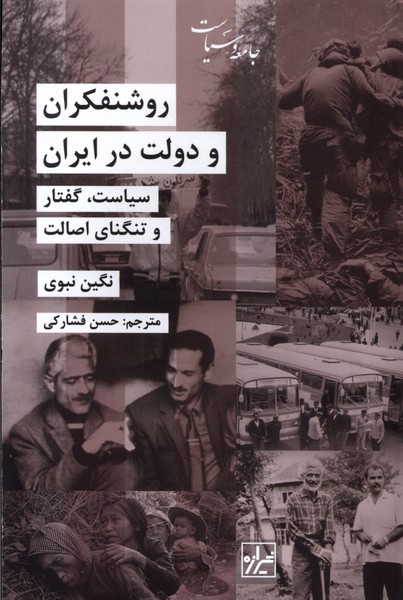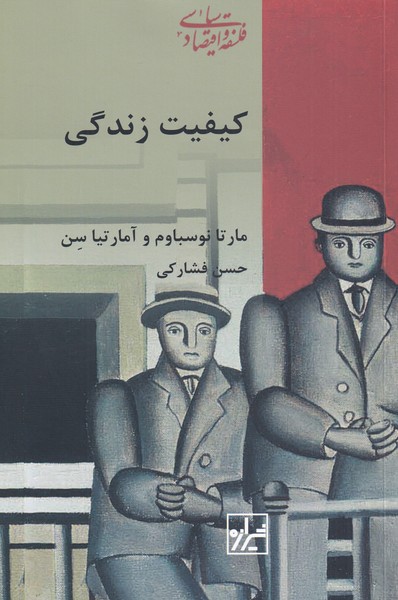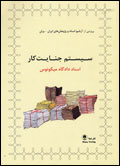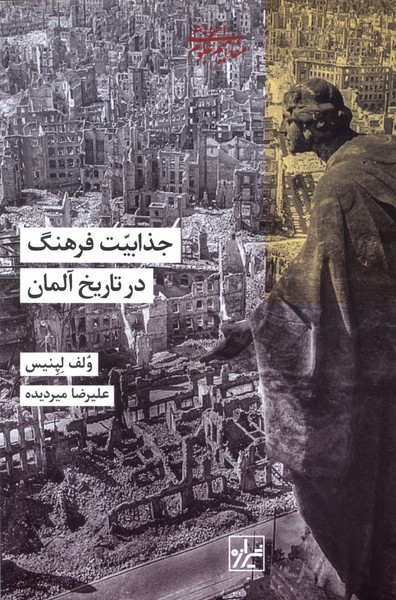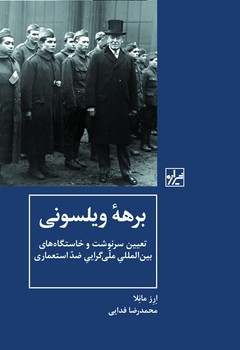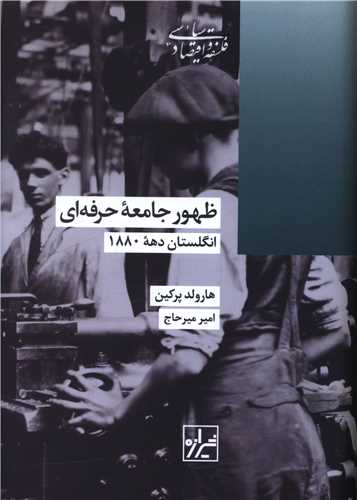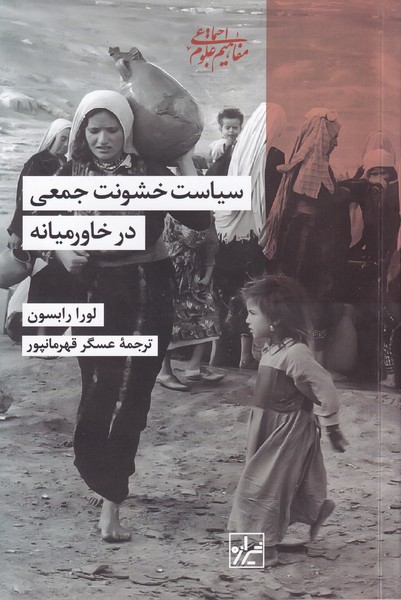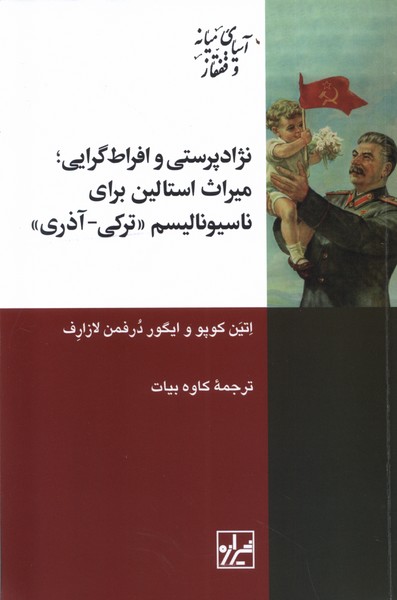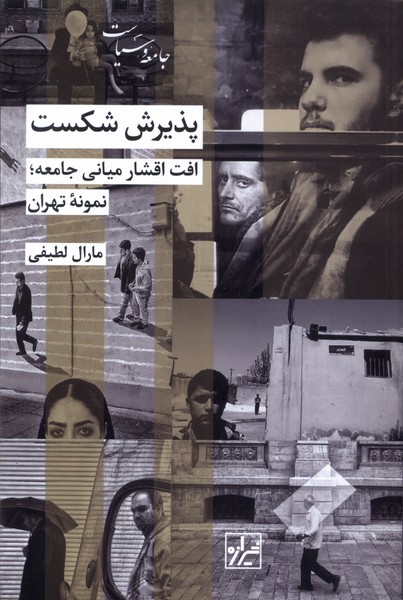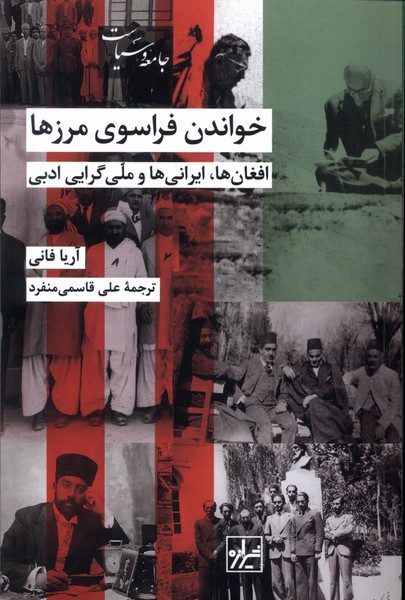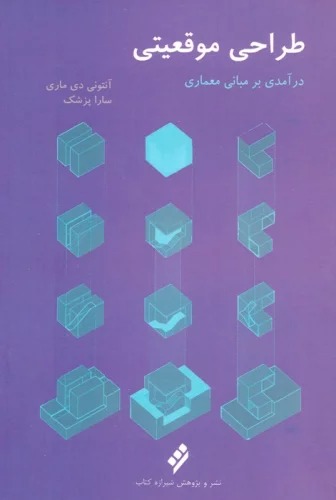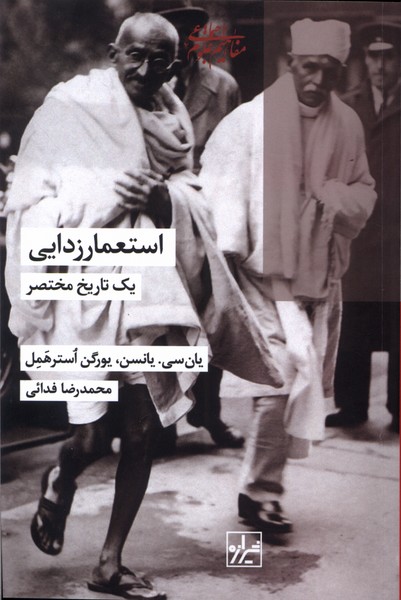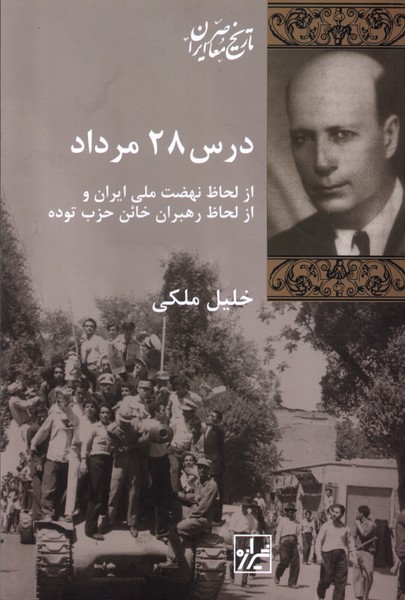روشنفکران و دولت در ایران فارسی 1402
Rawshanfikran va Dawlat dar Iran
22٫79 $
اشتراکگذاری
Wishlist
"Impressive [and] cogently argued. . . . shows how and why Iran's secular intellectuals gradually changed their generally negative perception of Islam in the three decades before the Islamic Revolution of 1979. With convincing evidence, [Nabavi] shows that Islam and mysticism had gained growing popularity among the secular intellectuals in the years preceding the revolution. . . . A must-read for anyone interested in the intellectual history of pre-revolutionary Iran."—Mohsen Milani, University of South Florida, author of The Making of Iran’s Islamic From Monarchy to the Islamic Republic In the aftermath of the Iranian Revolution of 1979, secularist intellectuals became a much-forgotten group. As the new revolutionary elite consolidated, secularists were marginalized, stigmatized, and accused of being "Westoxicated" and of "propagating Western values." And yet, Nabavi shows for the first time, that the secularists played an important role in enabling the revolution to take the shape that it did in 1978-79. The revolution that brought Ayatollah Khomeini into power was as much the revolution of the secularists as it was of Islamist forces. Drawing on Iranian intellectual periodicals and journals and focusing on a wide range of liberal, left-leaning writers and essayists--many of whom have never been translated, let alone written about--Nabavi re-creates the changing mood within secular intellectual circles in the decades that preceded the revolution. She provides an account of the intellectuals' trajectory from the old days of their membership in the Communist Tudeh Party in the early 1940s, when there was a party line, to the days when they became confused and constrained about what they could do and say. She discusses their changing perception of what it was to be an intellectual together with their shifting view of religion and Islam in particular, which came to find increasing expression among secular circles in the 1970s, as one of the most forceful components of the idea of "authentic culture." Intellectuals and the State in Iran will appeal to historians and political scientists with an interest in the cultural and intellectual aspects of social change and the question of the synthesis of religion and politics. Negin Nabavi is an assistant professor in Near Eastern Studies at Princeton University.
more
«مطمئن [و] استدلال متقن... نشان می دهد که چگونه و چرا روشنفکران سکولار ایران در سه دهه قبل از انقلاب اسلامی 1979 به تدریج برداشت منفی خود را از اسلام تغییر دادند. [نبوی] با شواهد متقن نشان می دهد که اسلام و عرفان محبوبیت فزایندهای در میان روشنفکران سکولار در سالهای قبل از انقلاب به دست آورده بود... برای کسانی که به تاریخ روشنفکری ایران پیش از انقلاب علاقه دارند، باید آن را بخوانند.» (محسن میلانی، دانشگاه فلوریدا جنوبی، نویسنده کتاب «ساخت ایران» اسلام از سلطنت تا جمهوری اسلامی پس از انقلاب 1979 ایران، روشنفکران سکولاریست به گروهی بسیار فراموش شده تبدیل شدند. با تثبیت نخبگان انقلابی جدید، سکولارها به حاشیه رانده شدند، انگ زدند و متهم به «غرب زدگی» و «تبلیغ ارزشهای غربی» شدند. با این حال، نبوی برای اولین بار نشان میدهد که سکولارها نقش مهمی در ایجاد انقلاب در شکلگیری شکلی که در سالهای 1978-1979 داشت ایفا کردند. انقلابی که آیت الله خمینی را به قدرت رساند به همان اندازه که انقلاب سکولارها بود، انقلاب نیروهای اسلام گرا بود. نبوی با تکیه بر مجلات و نشریات روشنفکری ایرانی و تمرکز بر طیف وسیعی از نویسندگان و مقاله نویسان لیبرال و چپ گرایانه - که بسیاری از آنها هرگز ترجمه نشده اند، چه رسد به نوشته ای در مورد آنها - حال و هوای تغییر در محافل روشنفکری سکولار را دوباره ایجاد می کند. دهه های قبل از انقلاب او گزارشی از مسیر روشنفکران از دوران قدیم عضویت آنها در حزب کمونیست توده در اوایل دهه 1940، زمانی که یک خط حزب وجود داشت، ارائه می دهد، تا روزهایی که آنها در مورد آنچه می توانند انجام دهند و می توانند بگویند، سردرگم و محدود می شدند. او درک در حال تغییر آنها از روشنفکر بودن را همراه با دیدگاه متحول آنها به دین و اسلام به ویژه مورد بحث قرار می دهد، که در دهه 1970 در میان محافل سکولار به عنوان یکی از نیرومندترین مؤلفه های این ایده بیان شد. فرهنگ اصیل." روشنفکران و دولت در ایران برای مورخان و دانشمندان علوم سیاسی علاقه مند به جنبه های فرهنگی و فکری تغییرات اجتماعی و مسئله ترکیب دین و سیاست هستند. نگین نبوی استادیار مطالعات خاور نزدیک در دانشگاه پرینستون است.
more

